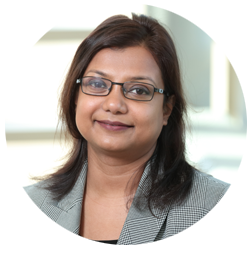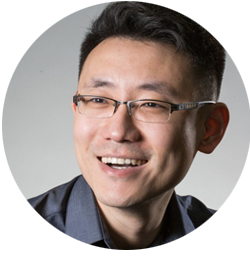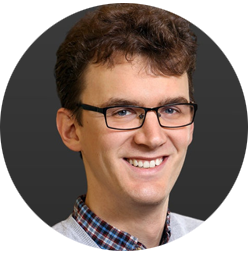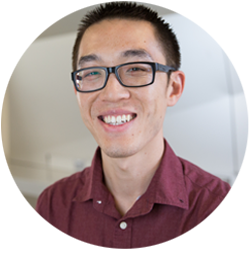CS Welcomes New Faculty
The department welcomes Baishakhi Ray, Ronghui Gu, Carl Vondrick, and Tony Dear.

Baishakhi Ray
Assistant Professor, Computer Science
PhD, University of Texas, Austin, 2013; MS, University of Colorado, Boulder, 2009; BTech, Calcutta University, India, 2004; BSc, Presidency College, India, 2001
Baishakhi Ray works on end-to-end software solutions and treats the entire software system – anything from debugging, patching, security, performance, developing methodology, to even the user experience of developers and users.
At the moment her research is focused on machine learning bias. For example, some models see a picture of a baby and a man and identify it as a woman and child. Her team is developing ways on how to train a system and to solve practical problems.
Ray previously taught at the University of Virginia and was a postdoctoral fellow in computer science at the University of California, Davis. In 2017, she received Best Paper Awards at the SIGSOFT Symposium on the Foundations of Software Engineering and the International Conference on Mining Software Repositories.

Ronghui Gu
Assistant Professor, Computer Science
PhD, Yale University, 2017; Tsinghua University, China, 2011
Ronghui Gu focuses on programming languages and operating systems, specifically language-based support for safety and security, certified system software, certified programming and compilation, formal methods, and concurrency reasoning. He seeks to build certified concurrent operating systems that can resist cyberattacks.
Gu previously worked at Google and co-founded Certik, a formal verification platform for smart contracts and blockchain ecosystems. The startup grew out of his thesis, which proposed CertiKOS, a comprehensive verification framework. CertiKOS is used in high-profile DARPA programs CRASH and HACMS, is a core component of an NSF Expeditions in Computing project DeepSpec, and has been widely considered “a real breakthrough” toward hacker-resistant systems.

Carl Vondrick
Assistant Professor, Computer Science
PhD, Massachusetts Institute of Technology, 2017; BS, University of California, Irvine, 2011
Carl Vondrick’s research focuses on computer vision and machine learning. His work often uses large amounts of unlabeled data to teach perception to machines. Other interests include interpretable models, high-level reasoning, and perception for robotics.
His past research developed computer systems that watch video in order to anticipate human actions, recognize ambient sounds, and visually track objects. Computer vision is enabling applications across health, security, and robotics, but they currently require large labeled datasets to work well, which is expensive to collect. Instead, Vondrick’s research develops systems that learn from unlabeled data, which will enable computer vision systems to efficiently scale up and tackle versatile tasks. His research has been featured on CNN and Wired and in a skit on the Late Show with Stephen Colbert, for training computer vision models through binge-watching TV shows.
Recently, three research papers he worked on were presented at the European Conference for Computer Vision (EECV). Vondrick comes to Columbia from Google Research, where he was a research scientist.

Tony Dear
Lecturer in Discipline, Computer Science
PhD, Carnegie Mellon University, 2018; MS, Carnegie Mellon University, 2015; BS, University of California, Berkeley, 2012
Tony Dear’s research and pedagogical interests lie in bringing theory into practice. In his PhD research, this idea motivated the application of analytical tools to motion planning for “real” or physical locomoting robotic systems that violate certain ideal assumptions but still exhibit some structure – how to get unconventional robots to move around with stealth of animals and biological organisms. Also, how to simplify tools and expand that to other systems, as well as how to generalize mathematical models to be used in multiple robots.
In his teaching, Dear strives to engage students with relatable examples and projects, alternative ways of learning, such as an online curriculum with lecture videos. He completed the Future Faculty Program at the Eberly Center for Teaching Excellence at Carnegie Mellon and has been the recipient of a National Defense Science and Engineering Graduate Fellowship.
At Columbia, Dear is looking forward to teaching computer science, robotics, and AI. He hopes to continue small-scale research projects in robotic locomotion and conduct outreach to teach teens STEM and robotics courses.

